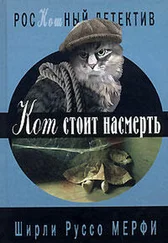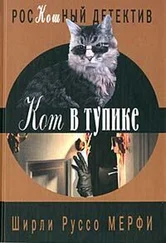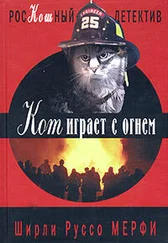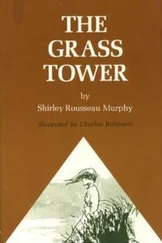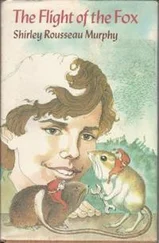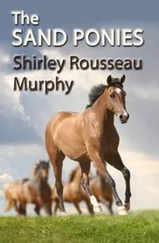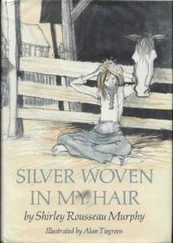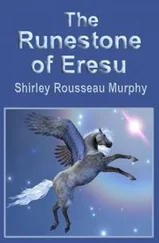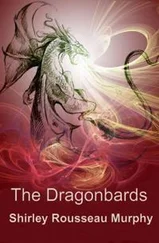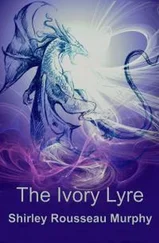Later she woke in darkness not knowing where she was and the pain so bad she moaned, lurched against the stone wall so she scraped her arm and then swore. She saw a candle lit, was given a draught by someone small, little hands, a child’s hands holding the mug and candle. She slept.
Then she woke at last to a morning when her senses were sharp and aware and lay watching the sun slant bright through the cobwebs that hung from the rafters. This room with its clutter of tools and furniture was entirely comforting.
The square, small woman was sitting by the window holding Ram in her lap, feeding him spoonful by spoonful as if he were a baby. Tayba rose, the ache in her side making her wince. She pulled the blanket around herself, supported herself against a barrel, then the thresher as she made her way across the room. The pain seemed to have been with her forever. She sat down on the bench close to the woman. What a wrinkled, leathery face she had; yet her mouth and eyes showed the lines of wry humor. The woman lifted Ram into Tayba’s lap, and handed her the bowl so she could feed him. But she could only sit holding his chin and staring into his dull, expressionless eyes. Was he even aware of her? He looked like a stranger; and she had forgotten his hair was black. The swollen wound on his forehead sickened her unbearably; so tender a place to be injured. She cradled him close, nearly weeping in her distress for him.
“He is better than he was,” the woman said. “It’s been all I could do to get some food down him, some herb tea.” Her hands were square and as wrinkled as her face. She wore shapeless coarsespun, a tunic over a long skirt, both dull brown in color and smelling of lanolin from the sheep.
“I am Dlos. I serve the master, Venniver, as we all do in Burgdeeth. My room is there, off this storeroom. We are behind the sculler of the Hall.”
“How did Ram and I come here? I can only remember being by the river, lying there—how long have I been in this room, how long has Ram been so hurt and sick?” She stared with growing fear at Ram’s closed, mindless expression. “Did anyone come with us? A man? Anyone . . . ?”
“I brought you here five days ago, me and three old women. There was a man with you.” Dlos studied Tayba carefully, reading her fear. “A dead man.”
“Was he . . .” Tayba’s voice caught. “Dead? Oh—was he tall and fair? Pale hair? He—”
“He was old and swarthy. Thin-faced like a rat. A Seer. An apprentice Seer of Pelli lay dead there wearing his Seer’s robes and amulet and torn to shreds by wolves. Their tracks were there—wolves that did not touch you two. I stripped him, disguised him, and buried his belongings. We do not need the trouble that a dead Seer would cause.”
Tayba’s head spun. “Disguised him?” She saw shadows on the plain and the great wolves leaping and tearing at the horses, at EnDwyl and the Seer, wolves pinning her against the boulder so she stood frozen in fear. She touched Ram’s forehead with shaking fingers and raised her eyes to Dlos. “How could you disguise a Seer, his hair. . . .” Then her eyes widened, her fingers flew to Ram’s hair, parted it, searching.
Ram’s hair had wanted dying, she had meant to dye it. Now there was no red. She stared at Dlos, her lips parted in fear.
‘The Seer carried a crock of dye. I used it on him to avoid questions about who he might be. And I used it on the boy, before the old women saw him.”
“You dyed Ram’s hair? But you—why would you disguise him?” she whispered. “We are nothing to you.”
“I have my reasons for doing what I do.” The old woman straightened the blanket around Ram’s feet. “The other man, the fair one you spoke of—perhaps he rode back downriver. I found the tracks of a third and smaller horse, carrying a heavy load and trailing blood. Was that your horse, the small one?”
“Yes, our pack pony.” She held Ram tight to her, trying to think. “EnDwyl will return. He will follow us,” she breathed suddenly. “He will come—”
“The two men were pursuing you?” Dlos asked, puzzling. “And you and this child sought sanctuary here, where Seers are so hated? But didn’t you know . . . ?”
“I meant to keep Ram’s hair dyed. My brother—my brother Theel is here.” She looked at the older woman. “You know about us. You know what Ram is. Have you told the leader Venniver?”
“Why would I dye the boy’s hair, if I meant to tell his secret?”
“But if—if Venniver finds out, what will he . . . what will he do to Ram?”
“If the boy is found out, he will be enslaved to work the stone.” The old woman pushed back her untidy hair and glanced out the window. “Mark you, I will tell no one. I have my own reasons for keeping that promise. Now, just why were you running from a Pellian Seer and from this EnDwyl you speak of?”
“They wanted to—train Ram.”
Dlos’s hand came up from her lap as if of its own accord, to touch Ram’s cheek. She said nothing. Then at last she raised her questioning eyes to Tayba. “So Theel is your brother. Does he know you have a child? A Seeing child? Does Theel know there is Seer’s blood as his family’s legacy?” She smiled crookedly. “He has never acted as if he knew such a thing.”
“No one—there is no Seer’s blood in my father’s house,” she said quickly. “That’s not possible. We would have known, my sisters and I. A Seeing child. . . .” Why was her pulse pounding so? “A Seeing child would have brought a fortune. No! It’s his father’s blood. EnDwyl’s. I have always known that.
“But my brother Theel—I have not seen him for eleven years; he can’t know I have a child. How could he?”
“Yes. Perhaps. And do you and Theel have the same mother?”
“No, but— there is no Seer’s blood in our family. None!”
“I didn’t mean to anger you, young woman,” Dlos said quietly. “So strange,” she mused. ‘To have many wives in a household. I come from the Isles of Sangur where a man weds only one woman.”
“What—what made you come here, to this place?” Tayba tried to calm herself, sat clutching Ram too tightly.
“I came with my husband. He followed Venniver and a wild dream into this land.” The old woman paused to look out at the morning. “Then he died some years back.”
Tayba looked hard at her, and impulsively put her hand over the square brown one. She could smell meat boiling from the doorway that must lead to the sculler and hear the voices of old women there. Suddenly Dlos shook herself as if she had come to some decision, and she looked over toward the far corner of the storeroom. Tayba followed her gaze and saw, crouched in the shadows, a thin little girl hardly visible among the clutter of tools.
“That is Skeelie.” Dlos beckoned, and the child rose and came to her, pressing against her. “Skeelie goes quietly and becomes a part of the stone and the rubble, and that is the way we want it.” She hugged the child close. “If Venniver forgets about her, forgets he sent her to me, then all is well with us.”
Skeelie looked at Tayba without much expression, then turned her gaze on Ram. And at once her face softened, changed utterly. Tayba offered Ram, and Skeelie sat down beside her and took him in her lap. He was nearly as big as she, but she held him as if she were quite used to the shape of him in her arms.
“Skeelie has nursed him, too,” Dlos said. Skeelie cuddled Ram close, and when she looked up at last, her eyes were full of such pleasure—and full, too, of a strange, unsettling knowledge. When she spoke, Tayba was shocked at the intensity of her reedy voice. “He sees something.” Skeelie touched Ram’s bruised forehead and wiped a smudge of gruel from his mouth. “He sees something that came here with you. He sees a darkness.”
Читать дальше
![Ширли Мерфи The Shattered Stone [calibre] обложка книги](/books/436059/shirli-merfi-the-shattered-stone-calibre-cover.webp)
